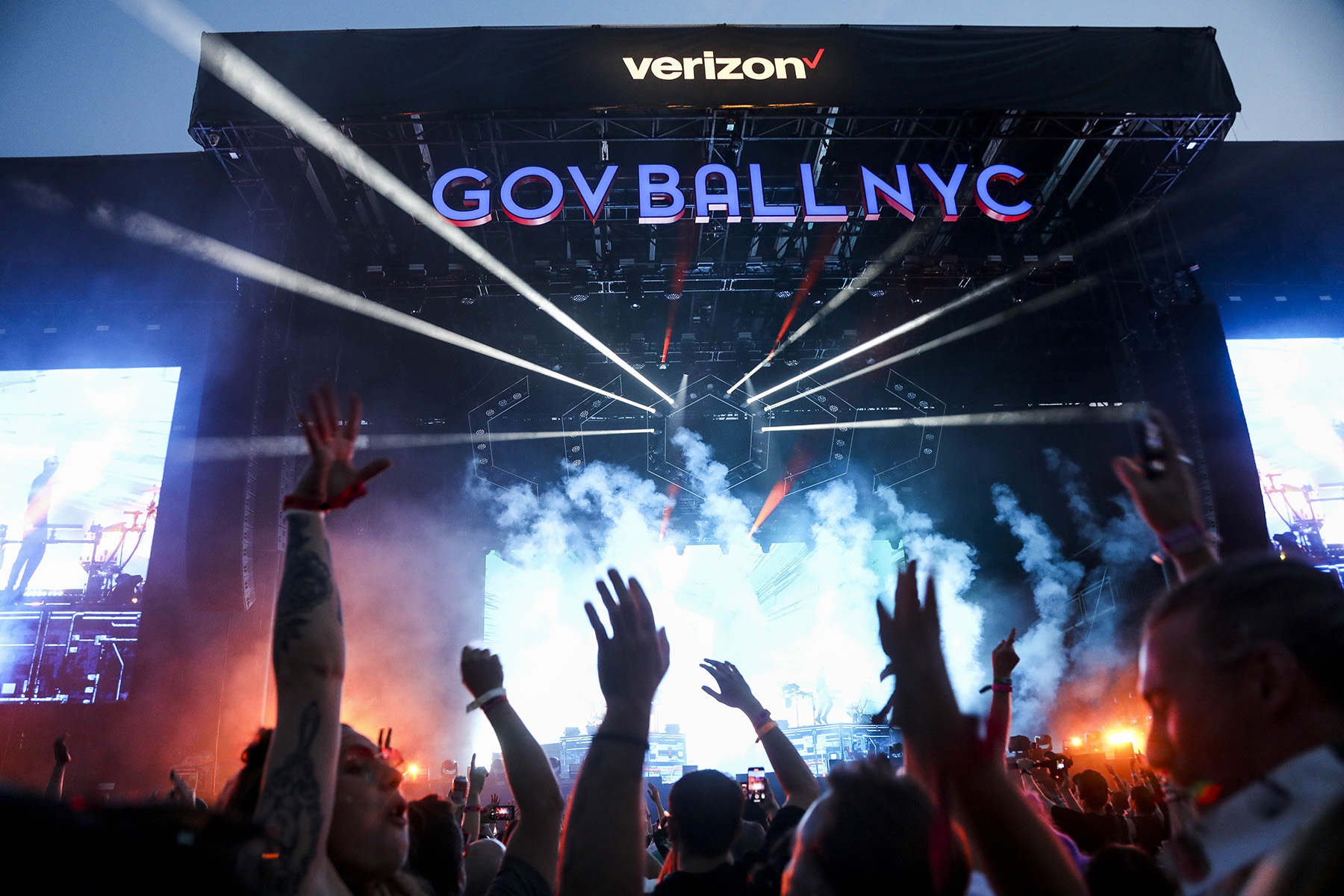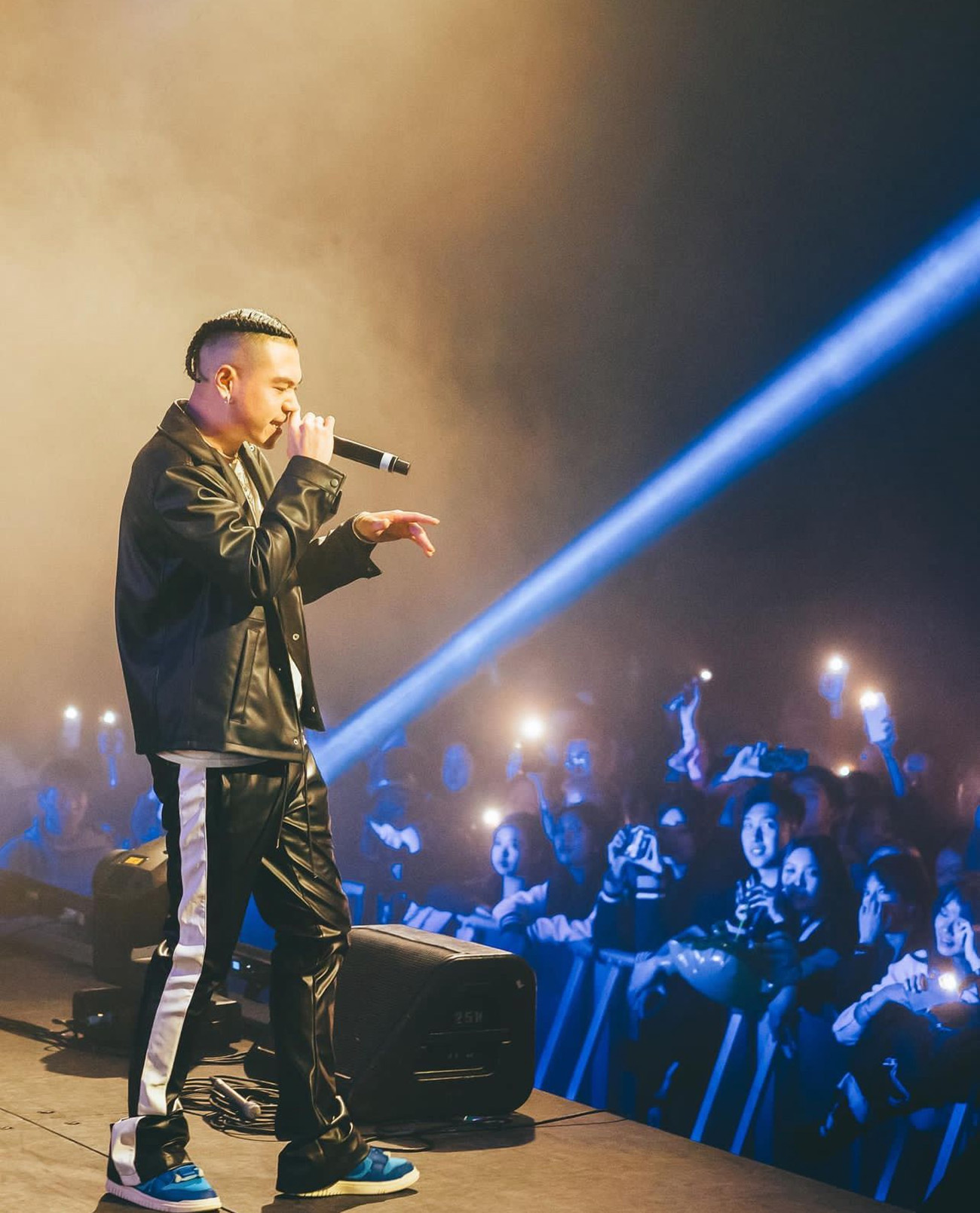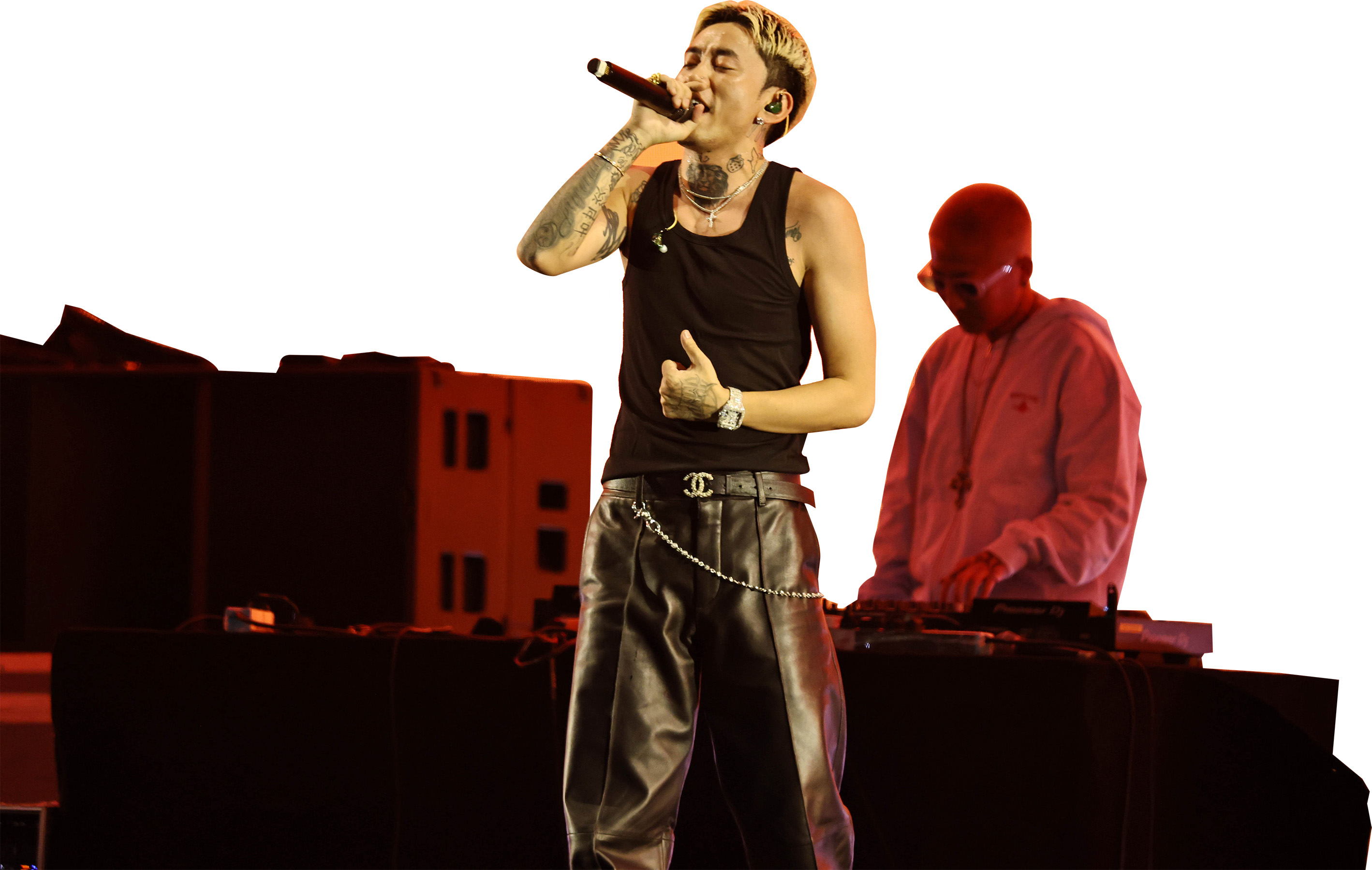Young artists in US fuse hip-hop with Chinese culture, creating a unique sound that resonates with global audiences

As US hip-hop music combines with Chinese content and culture, the emerging form of Chinese rap is becoming popular in China and the United States.
Hip-hop, a highly popular music genre in the US, predominantly appeals to young people. As a primary mode of expression, rap music provides artists with a fresh avenue to express their thoughts and emotions.
Blending beats, melodies, lyrics and cultural elements, Chinese rap provides audiences with a fresh way not only to enjoy music but also to understand the different musical cultures in different countries and foster exchange between artists.
"I always include Chinese culture in my music, whether it be samples or the things I talk about, because I feel like I can truly represent overseas Chinese people, and I can also relate to people in China," Peter Chen, also known as Castle$, told China Daily.
Born and raised in Philadelphia, Castle$ began his rap journey in English at the age of 14. During the initial stages few Chinese Americans delved into rap in the US, he said.
"Hip-hop was always big (when I was) growing up."
READ MORE: Imitation game
He was one of few Asian children who rapped on the streets, even in English."You didn't see too many people like yourself. I was the only one going around with jeans and caps, and people used to say, 'Why do you dress like that'or 'Why do you dress like a black?' I was like, 'How do you dress a race?'
"I'm just dressing how I want to express myself. And that's how it is with the music, too."
Castle$ said what brought him into Chinese rap was a TV show, The Rap of China, which caught his attention in 2018. He then took part in a reality show in China.
The rap reality TV show first aired in 2017 and featured influential Chinese rappers as well as younger artists. After the show, Chinese rap music transitioned from the underground to the mainstream music scene, attracting more fans and audiences.
"Maybe three months prior to that show, I started to write Chinese lyrics,"Castle$ said. Even though he can speak Chinese very well, he cannot understand some "punchlines" in Chinese because he grew up in the US. However, given his background, he said that could be a start for him. He will travel to China soon to compete in the show's new season, he said.
"It kind of put me in a situation where I must speak Chinese and I must rap Chinese, which is cool. I get to a certain point in China because of what I can do, what I can deliver, whether it be my music or my understanding of the culture."
Understanding two languages and two cultures helped him create more meaningful songs that contained the strength of the music, he said. "I'm respected here. And I feel like I'm never going to lose the Chinese side of myself. And you can see that in my music."
In addition to rapping, Castle$ has a background in filmmaking and incorporates Chinese-style music from films into his songwriting. Sampling Chinese elements or musical instruments is a common method used by many hip-hop artists, including Chinese rappers such as MC Jin and China Mac, who have greatly inspired him.
The rise of Chinese hip-hop music in recent years reflects the pursuit of self-expression and cultural innovation among Asians in the US, especially young people, and it demonstrates the diversification and internationalization trends in music.
"Because it's not just music, you know, it's culture," Castle$ said, noting that his style and fluency in both languages can help attract more audiences worldwide.
"I feel like music always crosses borders. We are made in China, and we may be squeezed in and find a spot in the US music market."
Wu Jiaxuan, also known as Rapeter, the champion of the 2024 The Rap of China overseas division, told China Daily: "It turns out that using the familiar tone of Mandarin to create these rap songs can also be done so well. There are some double, triple and quadruple words rhyming in the lyrics."
Wu, born in Lianyungang, Jiangsu province, said that was his impression of Chinese rap when he was a high school student, which inspired him to start his own music journey.
"I used to listen to American rapper Eminem (Marshall Bruce Mathers III) and Taiwan rappers like MC Hotdog," he said, and his interest in hip-hop music was affected by international music trends. "And one day I found a playlist called Underground Chinese Rap on a music platform and I started to listen to Chinese rap music."

Maturing market
Rapeter said he then began writing songs and became a "school rapper" at his school, but the rap music atmosphere was also just starting and was "impetuous", but he was still in the best era, when the Chinese hip-hop market was maturing.
In 2022 he decided to study at New York University. At the same time he continued to pursue rap as a hobby and a profession, developing his own unique style known as New Boombap.
Drawing inspiration from the traditional subgenre and music production style prominent in East Coast hip-hop during the golden age from the late 1980s to the early 1990s, Rapeter blended this style with his own personal flair.
Boombap is a genre in which the lyrics take central place, Rapeter said. He spends a lot of time polishing his lyrics, he said.
"I feel more confident when using the native language, which I'm more familiar with, and have more puns and a lot more punch. After coming to America I (became) particularly mindful of polishing certain lyrics, especially concerning introspection in this new environment and exploring significant societal topics. I want to produce lyrics with greater depth."
His New York Trilogy documents themes of family, love and contemplation on life. It explores his journey as an outsider adapting to life in the US, but also critiques anti-Asian hate crimes, and delves into issues such as drug abuse and homelessness. Through his music he wants to capture the "real" essence of the US, he said.
"These are all stories I've truly experienced. I hope my songs can show the audience what America is like, with its bustling metropolises and inclusive culture, but also its societal issues.
"Rap originated in the Bronx of New York, within the context of rap heavily influenced by street culture, but as a native Chinese speaker and participant in cultural exchange we can explore more possibilities of rap music with Chinese wordplay or punchlines."
China's culture is incredibly diverse, and local rappers in the US usually incorporate elements such as Shaolin martial arts and Chinese traditional instrument sound samples into their work, he said, and his songs were presented to one of the members of the influential hip-hop group Wu-Tang Clan during the overseas competition.
RZA, one of the group's members, said during a media interview for Wu-Tang: An American Saga, a Hulu series that he co-created, "Wu-Tang gets its name from kung fu films — Shaolin versus Wu-Tang- and Asian culture has been something that helped me grow as a young man coming up in the hood."
The group of rappers was greatly influenced by Asian culture, especially martial arts and Eastern philosophy.
"They also find it incredibly magical because their inspiration comes from Chinese culture, and now they've become our inspiration," Rapeter said."So it's a blend and gives me a spiraling upward feeling. I think that's particularly wonderful.
"For Americans, they felt that their (rap) culture is respected by young people in China. We appreciate their culture; they respect our Chinese culture as well. The exchange exists and will definitely be maintained between young people of the two cultures."
Boxi Chen, 22, a pop musician and student at Columbia University in New York, told China Daily: "As younger generation musicians we want to try something new. Chinese rap music is gradually aligning with the mainstream market, and we are catching up, with a lot of room for growth."
He is often invited by Chinese rappers who travel to the US to perform, he said.
His work is not limited to hip-hop but also encompasses Chinese pop, electronic music, jazz and R&B in various styles. His idol is Jay Chou, a Chinese pop singer with rap elements, and he is also influenced by many Western artists such as Eminem and Bob Marley, he said.
Chen said he has been influenced by the music cultures of various regions, and rapping is a way that gets people together to talk.

Medium for expression
"Rap songs are very relaxing. You can say whatever you want and express whatever you feel because it's a great medium for expression. It can capture your daily life, even if I just talk about what I ate or did today. With a rhythm, everyone can have a lot of fun, and it's also a great way to make friends."
He takes part in an open mic event every Friday at Musewav, a music group that brings together singers and producers from various countries to make music together.
"Even if we don't understand each other's language, we can still feel the vibe of rap, which feels very cool, and it allows us to communicate and learn from each other."
ALSO READ: Down on the farm, South Korean granny rappers drop the beat
He often encounters non-Chinese who express appreciation for his music, which also helps him build many personal connections and friendships, he said.
Chinese rap music is highly playful, characterized by its use of Chinese rhymes, poetic and song allusions, and the diverse cultures of various ethnic minorities, which create rich regional variations through their distinct dialects.
The market for Chinese rap is gradually opening up and catching up, he said, as seen with the Higher Brothers of the US media company 88rising that focuses on Asian artists.
Their song Made in China has been very popular in mainstream music markets in the West. In the song the Higher Brothers play mahjong and rap about everything being made in China, blending Western style with Sichuan dialect. The track has had billions of views on the internet.
"As long as we make our own unique contributions, many Americans will find Chinese rap cool, different from the stereotypical image of classical music," Chen said.
"For Chinese rap and pop music there is a definite market internationally.
"For me, as a younger generation myself, I've heard excellent American music that has reached China, and we also want to bring our work to the US to let more people hear it. That's a responsibility."


